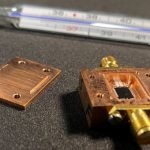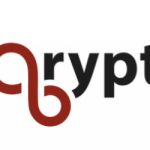Interview with Honeywell’s Uttley Discusses Merger with CQC Who Says End Goal Is to Create & Succeed as Quantum Computing Company

(HPCWire) Depending on your perspective, the Honeywell-IonQ merger plan is evidence of a potential quantum computing gold rush – at least in terms of a rush to raise capital and, to a lesser extent, to create vertically integrated (hardware and software) entities – or evidence of industry consolidation. It comes at a time when potential investors are sitting on huge hoards of cash.
Jack Russell provides a deep-dive analysis of the merger summarized here by the IQT and well worth the time to read.
When the deal closes, Honeywell will own 54 percent of the new company and Cambridge shareholders will own 46 percent. However, as Tony Uttley, currently president of the Honeywell quantum business and tapped for the same job at the new company, confirmed in a briefing with HPCwire, by this time next year Honeywell is unlikely to still be the majority owner.
While acknowledging that attracting investment is a key objective, Uttley emphasized the end goal is to create and succeed as a quantum computing company. Honeywell and Cambridge have been collaborating for three years and Cambridge has been the single largest user of Honeywell’s quantum systems, said Uttley. Where Honeywell has focused on hardware, Cambridge expertise spans quantum algorithm and application development along with middleware and programming tools.
While acknowledging that attracting investment is a key objective, Uttley emphasized the end goal is to create and succeed as a quantum computing company. Uttley said: “We came to a collective realization that if you want to have the best company out there in quantum, the way to do it is to fully integrate, to have a full solution – applications, middleware, operating system, and hardware – that can be collectively designed to go after some of these really critical challenges that are going to be the hallmark of quantum computing.”
He said the merger/spinout approach is new for Honeywell. “This is unique in the history of Honeywell to go and do something like this, where we’ve taken a breakthrough growth initiative (HQS) and said, the right thing to do right at this moment is to actually put it into a position where we can combine it [with a complementary partner], turn it into its own company, set it up with a capital structure immediately by giving it $270 to $300 million of cash, and then allow it to onboard investments.”
Uttley contends there are two powerful pieces to the merger story. “The first is Cambridge, quantum computing is and will continue to be hardware agnostic. So as they do software development in chemistry and machine learning, cybersecurity, it is going to be across multiple platforms and multiple technologies. That will continue. The second point is that if you want to build something that’s going to add value, quickly, it’s not about universal quantum computers. So universality is great [but still distant]. But if you can design architectures that are fit for the application, you can make them extremely efficient. We have the ability now to go from the trap all the way up to the operating system to the combination layer of the compiler and the application.





















